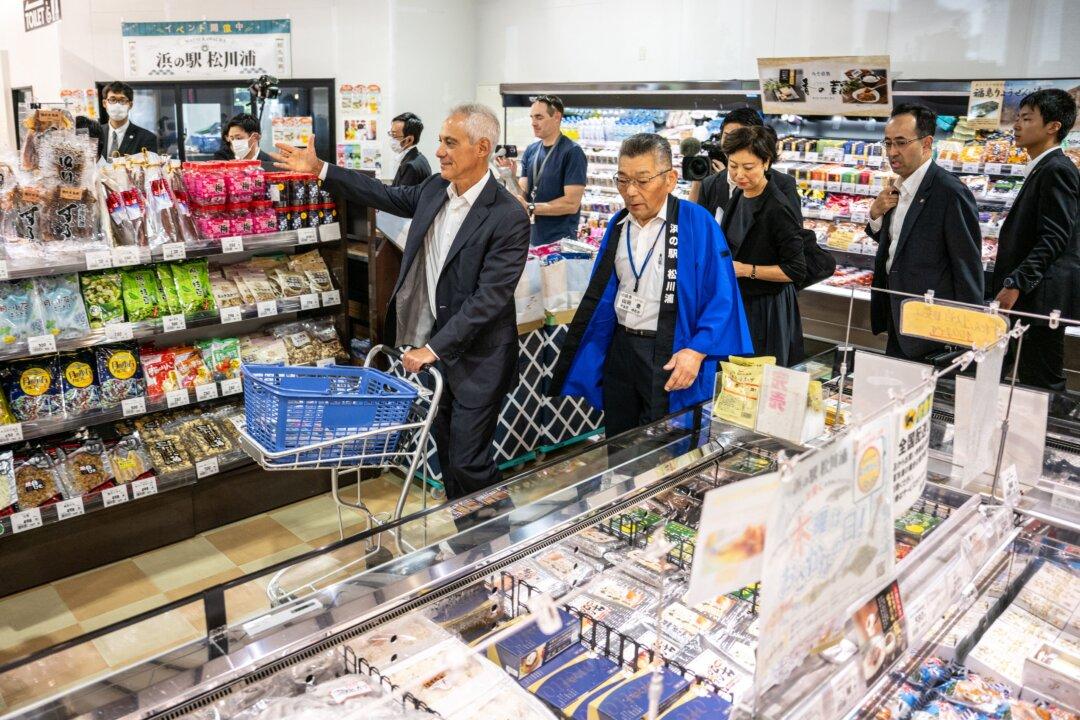The U.S. ambassador to Japan visited the Fukushima region on Aug. 31 to show support after the release of treated radioactive wastewater from the Fukushima nuclear power plant triggered controversy over its safety.
During his visit, Ambassador Rahm Emanuel bought fish and dried seaweed at a fish market, visited a grocery store in Fukushima and had a seafood lunch with the mayor of Soma city, according to multiple reports.





